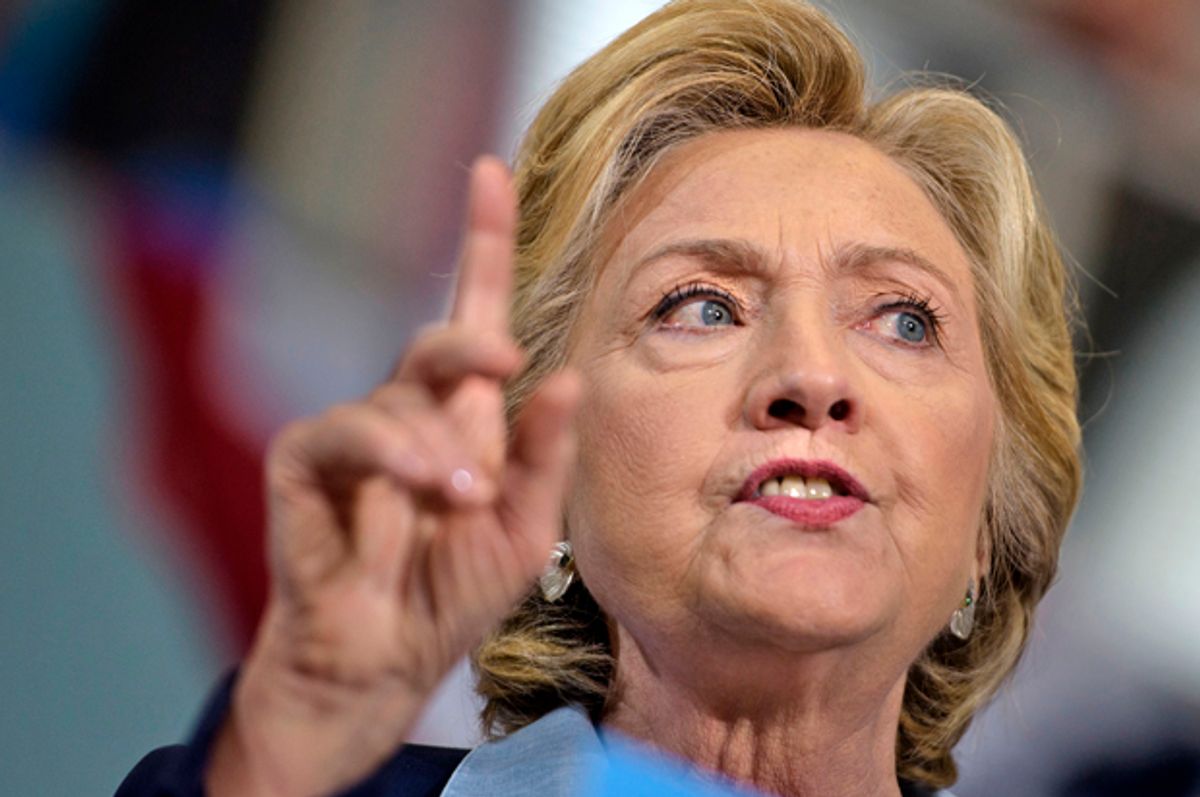The damning leak of Donald Trump confirming on a hot mic what every woman already knew — Trump is the egotistical pervert whom you avoid at cocktail parties — puts him in a bruised position and makes Hillary Clinton’s victory more likely.
If Clinton wins the presidential race, the question is whether she’d work with Republicans, as her husband tended to, or simply continue President Barack Obama’s path of leftward isolationism, enabled through his executive overreach. On environmental policy, for example, Obama has been particularly uncompromising in his war on coal and his pursuit of “green energy,” which has resulted in the worst forms of crony capitalism (see: Solyndra) as well as a string of anti-fracking and other regulations that have since been struck down by the courts.
For imagining a Hillary Clinton White House, let's consider a simple, reasonable policy test case: a clear, focused bill introduced in 2015 by Republican Rep. Sam Graves of Missouri that would increase the length of the National Pollutant Discharge Elimination System permit cycle from five to 20 years. The proposed legislation would give municipalities more time to finance required environmental improvements (while still making them on the same schedule).
Under the Clean Water Act passed by Congress 40 years ago to clean up polluted rivers and lakes, the National Pollutant Discharge Elimination System permit program was created to control water pollution by regulating where pollutants are discharged. These permits are issued by the Environmental Protection Agency to municipalities, who, in turn, partner with industry, developers and homeowners to ensure that they can meet the permit requirements. These permits usually run five years in length.
Right now cites and towns are often forced to take out a 20-year loan for each five-year permit, which means that at any time, they are paying off loans for four different permits — four times the paperwork, four times the lost personnel hours and four times the legal and filing costs footed by taxpayers.
Basically this bill would make things less bureaucratic at the EPA by giving municipalities more financial flexibility to comply with these regulatory requirements, which are stringent. Having previously worked as a municipal bond analyst at Moody's Investors Service and municipal credit analyst at Goldman Sachs, I've seen how many small towns struggle with balancing their books even before having to pay off multiple loans at once — a superfluous requirement that doesn’t help the environment. What's more, it creates a domino effect of local-level red tape that, in turn, affects small businesses and employers who interact with the towns and cities.
Floyd Gilzow, the vice president of member relations, governmental and environmental Affairs for the Missouri Public Utility Alliance, has pointed out that a growing number of cities nationwide are caught paying for improvements to sewer plants that can no longer be used because of changing parameters that dictate the amount of pollution a facility may discharge.
If Trump is the culmination of a troubling rise in white nationalist forces, you could also argue that he personifies a more legitimate anger directed at the current occupant of the White House, who talked a swell game of bipartisanship but didn’t play one. Barack Obama's 2004 Democratic National Convention speech eschewing red or blue states sounded fantastic. But once he was elected president, it became clear that his plan to fundamentally transform America into a leftist utopia didn’t include consultations with his constituents in Flyover America. Obama has not governed like a bipartisan figure like Bill Clinton or Ronald Reagan — who won 44 of 50 states in 1980 and 49 states in 1984.
If Hillary Clinton is elected to the Oval Office, she’ll have the opportunity to decide whether to keep the Democratic Party on its fatalistic Bernie Sanders course or move into areas of sensible, bipartisan compromise. Fixing the National Pollutant Discharge Elimination System would serve as a simple legislative litmus test of her intentions, an easy win to help lift cities and towns — both red and blue — out of a bureaucratic morass. Besides, think of all the paper it would save.

Shares